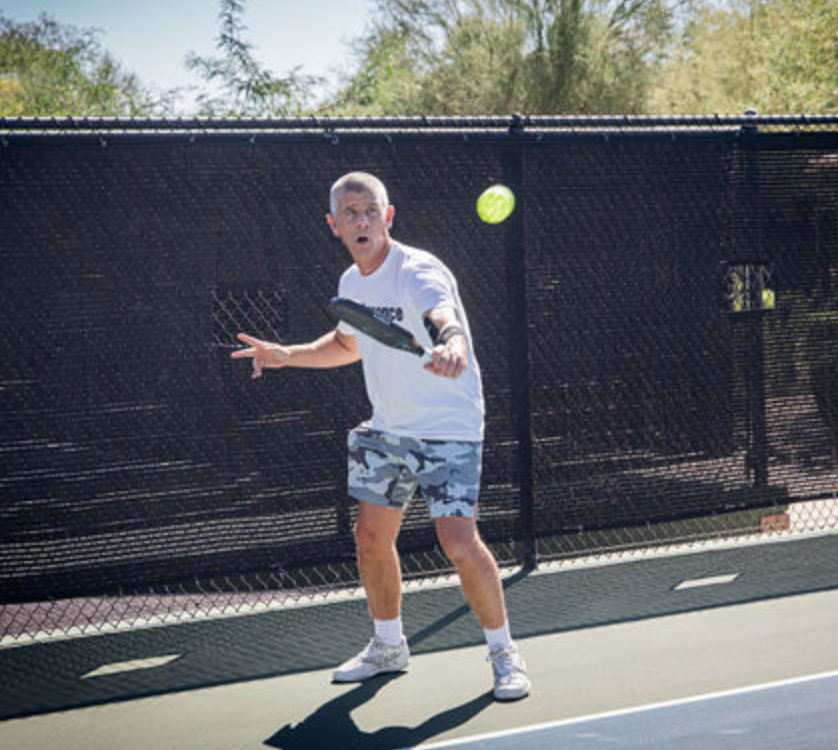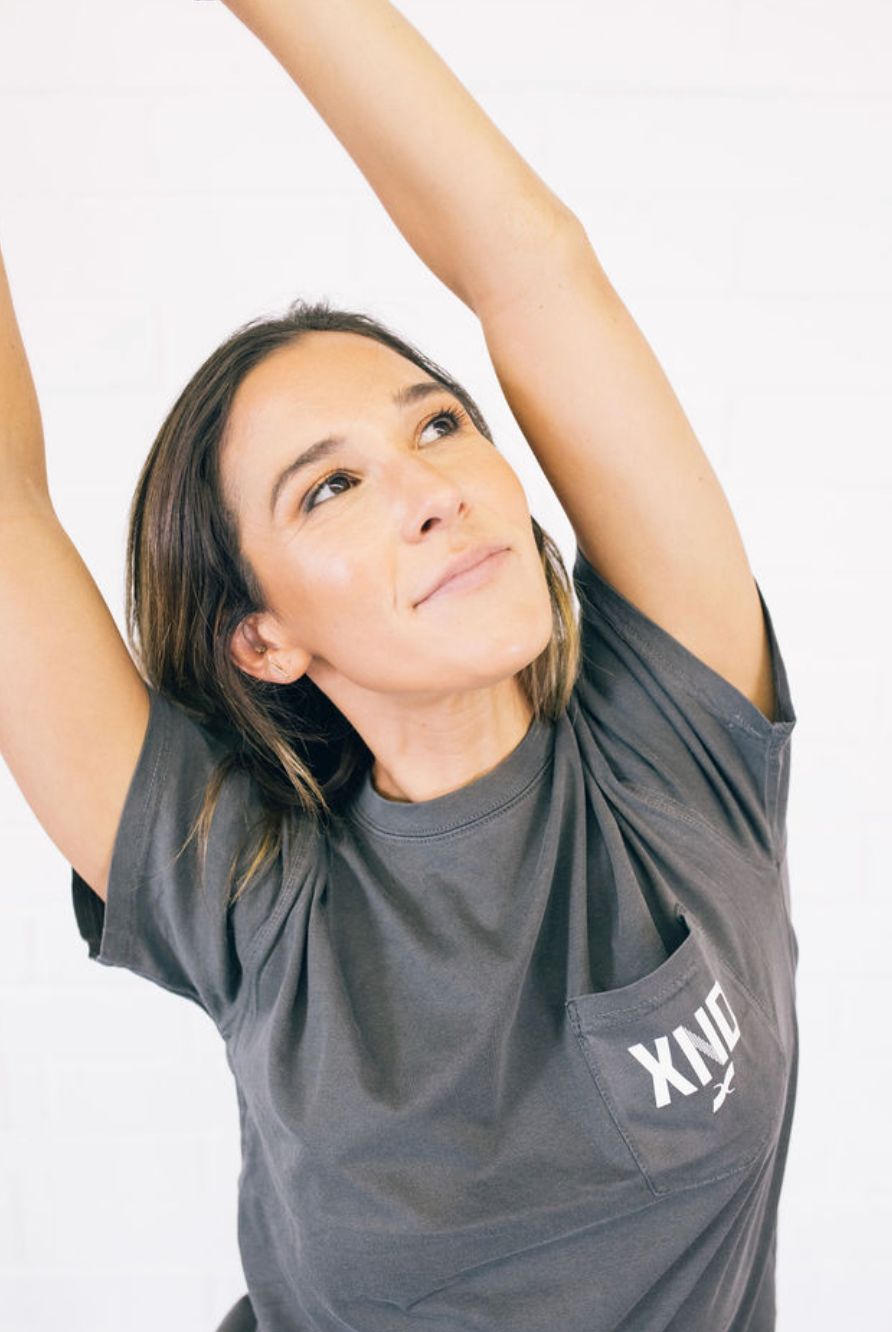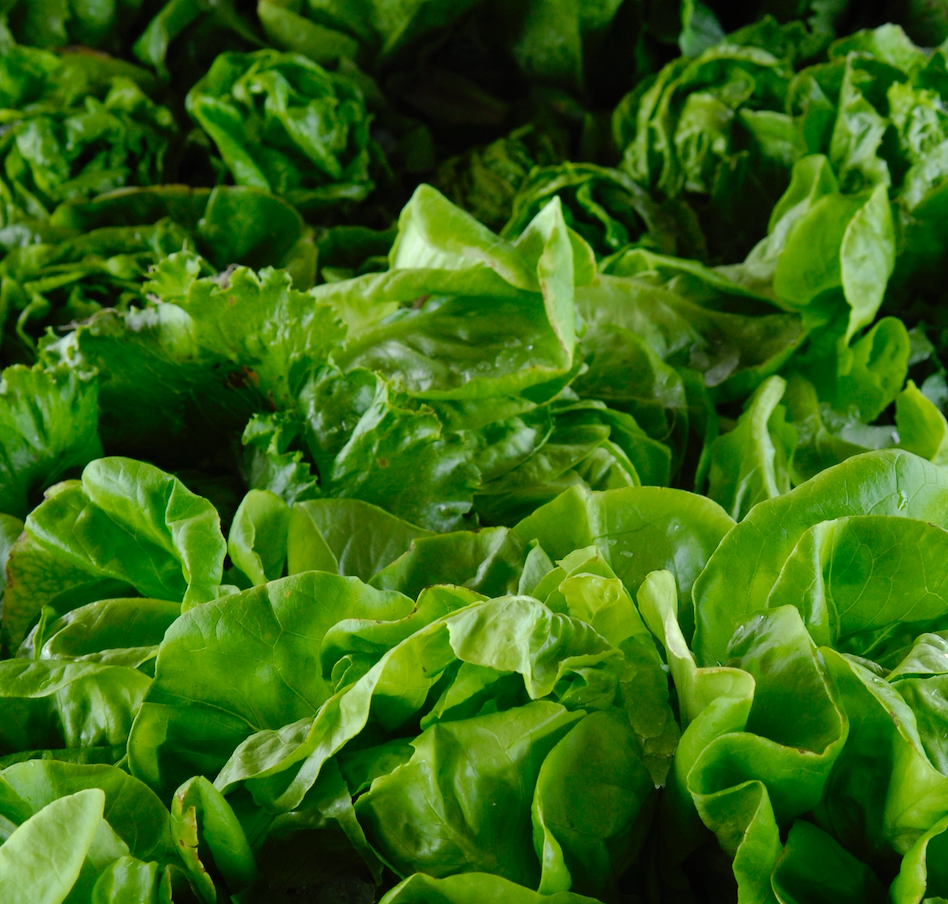In recent years, pickleball has emerged as one of the fastest sports, gaining popularity among people of all ages and fitness levels. As a fun and accessible paddle sport, it offers numerous physical, mental, and social benefits. In this blog post, we'll introduce you to the new and exciting world of pickleball, discuss its many health advantages, provide tips on getting in shape for the game, and explore the social aspect that makes it an engaging and enjoyable activity. If you haven’t picked up this new sport and phenomenon, you might want to after reading!
What is Pickleball?
Pickleball is a unique paddle sport that combines elements of tennis, badminton, and table tennis. It was invented in the 1960s on Bainbridge Island, Washington, by three fathers seeking to entertain their children during the summer. The sport has since evolved and is now played by millions of people around the world.
Played on a badminton-sized court with a low net, the game can be enjoyed in both singles and doubles formats. Pickleball uses a perforated plastic ball, similar to a Wiffle ball, and solid paddles made from wood or composite materials. The rules are simple and easy to learn, making it an ideal choice for beginners and seasoned athletes alike.
Health Benefits of Pickleball
Cardiovascular Fitness: Pickleball is an excellent aerobic exercise, providing a great workout for your heart and lungs. By engaging in regular physical activity, you can improve your cardiovascular fitness, help reduce the risk of heart disease, stroke, and high blood pressure and have fun while you’re at it!
Muscle Strengthening: The sport requires players to use various muscle groups, including those in the legs, arms, and core. This can help increase overall muscle strength, tone, and endurance.
Balance Improvement: Pickleball involves a lot of quick, agile movements and changes in direction. As a result, playing the game can help enhance your balance and coordination. Just watch any 80 year old on the court - and try to keep up.
Joint Flexibility: The low-impact nature of pickleball makes it easier on your joints than other racquet sports, such as tennis or squash. This can help improve joint flexibility and reduce the risk of injury.
Mental Health: Engaging in regular physical activity, like pickleball, has been shown to improve mood, reduce stress, and alleviate symptoms of depression and anxiety.
Weight Management: Pickleball can help you maintain a healthy weight by burning calories and increasing your metabolism. A one-hour game can burn anywhere from 300 to 600 calories, depending on your intensity level.
Stress Reduction: The sport serves as a fun and engaging way to relieve stress, providing a much-needed break from daily routines and responsibilities. And it gets you away from the TV and screen time.
Hand-Eye Coordination: Pickleball requires precise hand-eye coordination, which can be beneficial for people of all ages, particularly seniors who may experience a decline in these skills.
Endurance Building: Regularly playing pickleball can help build endurance, allowing you to participate in physical activities for longer periods without getting fatigued.
Preparing for Pickleball: Think About Getting in Shape
To fully enjoy the benefits of pickleball and minimize the risk of injury, it might not be a bad idea to get in shape before hitting the court. Here are some tips to help you prepare:
- Warm-Up: Begin each workout or pickleball session with a 5-10 minute warm-up, including light cardio exercises and dynamic stretches to increase blood flow and loosen up your muscles.
- Cardiovascular Training: Incorporate regular aerobic activities, such as brisk walking, jogging, swimming, or cycling, into your routine to improve cardiovascular fitness.
- Strength Training: Focus on exercises targeting the major muscle groups used in pickleball, including the legs, arms, and core. Bodyweight exercises, resistance bands, and weightlifting can all help to build strength and endurance.
- Flexibility and Balance: Incorporate stretching and balance exercises into your fitness routine. Yoga, Pilates, and Tai Chi can be particularly helpful for improving flexibility, balance, and coordination.
- Practice Drills: Work on specific pickleball skills, such as serving, dinking, and volleys, to improve your game and reduce the risk of injury.
- Rest and Recovery: Allow your body adequate time to recover between workouts and pickleball sessions. Aim for at least one rest day per week, and listen to your body if you need additional recovery time.
Social Benefits of Pickleball
One of the most significant aspects of pickleball is its strong social component. The sport fosters a sense of camaraderie and connection among players, offering various social benefits:
Community Building: Pickleball courts often become hubs of local activity, bringing people together and creating a strong sense of community. As a result, the sport can help to forge new friendships and strengthen existing ones.
Intergenerational Interaction: With its accessible rules and low-impact nature, pickleball is a sport that can be enjoyed by people of all ages. This encourages interaction between generations, promoting understanding, mutual respect, and shared experiences.
Stress Relief: The social aspect of pickleball can provide a much-needed break from daily stressors, allowing players to relax, laugh, and enjoy the company of others.
Inclusivity: Pickleball promotes an inclusive atmosphere that welcomes players of all skill levels, ages, and backgrounds. This helps to create a supportive environment where everyone can enjoy the game and feel a sense of belonging.
Networking Opportunities: Pickleball clubs and leagues often host social events and tournaments, providing opportunities for players to network, make new connections, and expand their social circles.

Should You Hydrate For Pickleball? Supplements To Consider?
Proper hydration and nutrition are essential for optimal performance in any sport, including pickleball. To ensure that your body stays well-hydrated and receives the necessary nutrients, here are a few things you might want to consider:
Hydration for Pickleball
Start hydrating before you hit the court by drinking at least 16-20 ounces of water 2-3 hours before playing. This helps to ensure that you are well-hydrated before you start playing.
During the game try to drink 7-10 ounces of water every 10-20 minutes while playing pickleball, depending on factors like temperature, humidity, and individual sweat rate. You can also consider using an electrolyte-replacement sports drink if you're playing for an extended period or in hot and humid conditions. Leg cramping prevention should be on every pickleball player’s mind and electrolytes are crucial.
After playing, rehydrate by drinking water or a sports drink to replace the fluids and electrolytes lost during the game. Aim to drink at least 16-24 ounces of fluid for every pound of body weight lost through sweat. Hydration is key no matter your age!
Supplements for Pickleball
While a well-balanced diet should provide most of the nutrients required for pickleball, some players may choose to take supplements to support their performance and recovery. Some supplements to consider provide specific sports goals while others just keep your engine ramped up and running strong!
We have talked about electrolyte supplements, but we can’t stress these enough. Formulas containing sodium, potassium, and magnesium can help maintain proper hydration levels and prevent muscle cramps during long, intense games, especially in hot and humid conditions. Lactate to support energy is also a l special ingredient.
Throw in some BCAAs (Branched-Chain Amino Acids): BCAAs, including leucine, isoleucine, and valine, and these ingredients may help to reduce muscle soreness and support muscle recovery after intense exercise.
Consuming a high-quality protein supplement like whey, casein, or plant-based protein after playing can aid in muscle repair and recovery. Almost every other sport relies on adding protein to their diet for recovery after a game, event, or training.
A daily multivitamin can help to ensure that you're getting all the necessary vitamins and minerals needed for optimal health and performance. Not all of us remember to eat their daily recommendations of vegetables and fruits so a multi-vitamin is a little like health and wellness insurance.
Omega-3 supplements, such as fish oil packed full of EPA (Eicosapentaenoic Acid) and DHAs (Docosahexaenoic Acid), can help support joint health, promote reduced inflammation, and improve overall well-being.
In summary, maintaining proper hydration and considering appropriate supplements can play a crucial role in optimizing your performance and recovery in pickleball. If your energy level is low, you are at a disadvantage in taking on your opponent and winning!
Now it's time to give it a go! Pickleball is a fun, engaging, and accessible sport that offers numerous physical, mental, and social benefits. By learning the game, getting in shape, and participating in the vibrant pickleball community, you can improve your overall health, make new friends, and enjoy a fulfilling and active lifestyle. So, grab a paddle, gather some friends, and hit the courts – it's time to experience the exciting world of pickleball!
\









コメントを書く
このサイトはhCaptchaによって保護されており、hCaptchaプライバシーポリシーおよび利用規約が適用されます。